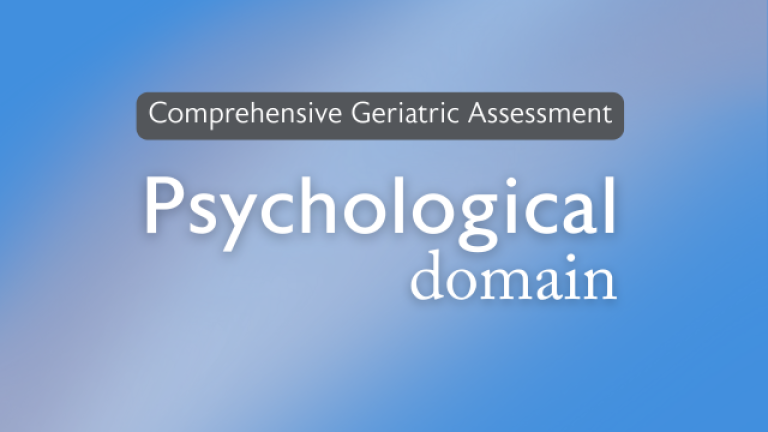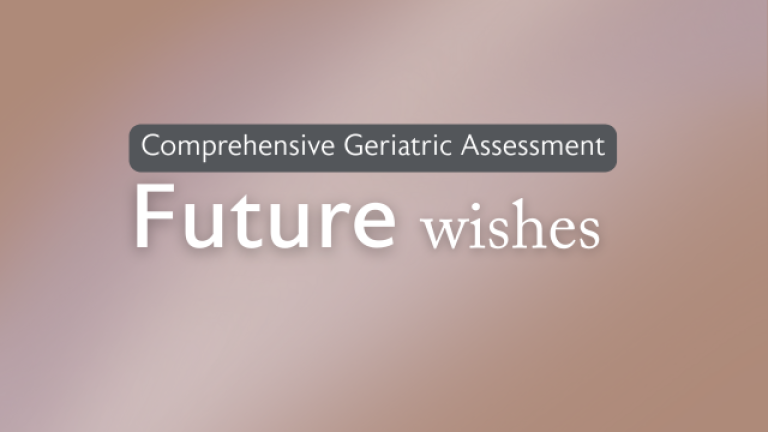Implementing an Electronic Comprehensive Geriatric Assessment (eCGA): at Sandwell and West Birmingham NHS Trust
Transitioning the Comprehensive Geriatric Assessment (CGA) into an electronic format was a crucial step in standardising documentation, improving compliance and enabling multi-user input within the Frailty Intervention Team (FIT) at Sandwell and West Birmingham NHS Trust. While extensive guidance exists supporting CGA use, there is limited practical information on its real-world application.
Click to expand
Below is an outline of the key processes we followed to successfully implement the eCGA within our Electronic Patient Record (EPR) system.
Identifying the need for digital transformation
- Initial service evaluation identified inefficiencies, poor CGA compliance, incompleteness and a lack of standardisation with the documentation.
- A combined root cause analysis helped to understand in greater detail.
- The current EPR system lacked a built-in CGA tool resulting in a cumbersome predominantly free-text proforma that lacked multi-user functionality within a single form.
Collaborating with IT and EPR provider
- Established a working group with representatives from the Frailty team (multiple professions), IT, EPR provider and the project team.
- Mapped out the current state including the required CGA components and incorporated them into a standardised electronic template. Explored feasibility, technical constraints, automatic data capture and auditability from IT/EPR.
Designing and Testing the eCGA
- Conducted user engagement sessions with clinicians to gather feedback on usability.
- Developed a prototype eCGA form utilising a range of suggested digital features such as dropdown menus, mandatory sections, auto-population and checkboxes.
- Piloted the eCGA with a small test group to assess functionality. Test, re-test and validation were crucial.
Training and implementation
- Designed a structured training program for all multidisciplinary team members and created ‘CGA adopters’ who became super users to facilitate the launch.
- Delivered virtual and in-person training sessions focusing on both CGA content and electronic functionality. Alongside a digital training guide embedded into the EPR system.
- Official launch of the eCGA in March 2024.
Monitoring and sustaining compliance
- Introduced regular audits and obtained reporting metrics that could contribute to the wider frailty dashboard of data.
- Gathered ongoing user feedback to refine the eCGA and address any issues directly with IT.
- Targeted 80%+ compliance within 12 months of the launch, ensuring the process remained efficient and sustainable.
Key lessons learned:
- Early collaboration with IT and the EPR provider was essential to align the digital solution with the clinical need. Understanding the feasibility of the EPR system was essential.
- Engaging the team throughout the design process ensured a smoother launch and adoption.
- Setting a realistic timescale for the project as digital change isn’t quick.
- Testing and retesting the eCGA was time-consuming but valuable, allowing for refinements before the official launch.
The implementation of the eCGA has significantly improved documentation efficiency and compliance rates thereby enhancing the well evidenced CGA outcomes. This approach can be replicated in other settings seeking to digitalise CGA or similar assessments.
For any queries about this project please get in touch: emmahibbs@nhs.net
Updating CGA documentation across Trusts and sites using Epic©: King’s College Hospital and Guy’s and St Thomas’ Hospital
The aim of this CGA Navigator project was to create a universal space for where the CGA template can live within Epic© where all members of the MDT can input into a single area.
Click to expand
Consultation phase: Involving the MDT
- We recruited a member of each discipline within our services, and consulted with the front-door frailty teams, who work slightly differently.
- The domains were agreed based on previous CGA documentation on EPR, as well as further consultation with the gerontology MDT.
- There has been an evolution of CGA domains used across site within the past decade.
Development stage
- Recruitment of an IT specialist to help build the new documentation.
- Research into how each discipline is documenting key information in order to pull this information into the CGA document, i.e., using Epic smartphrases and flowsheets.
Cultural change and continual engagement
- Adopting cultural change to ensure there is a standard process for documenting key information.
- Educating and recruiting resident Doctors about CGA documentation across site.
Audit/Data analysis
- Involving the MDT (including rotating resident doctors) in audit of CGA documentation and data analysis. This work is an example of a continuous PDSA cycle/quality improvement.





